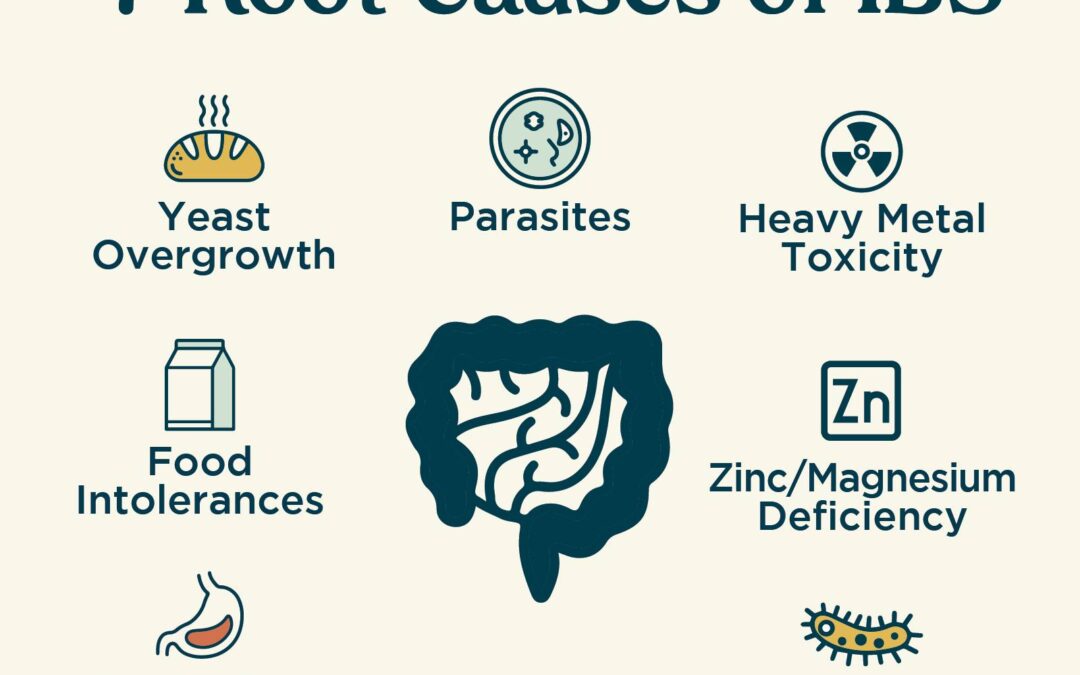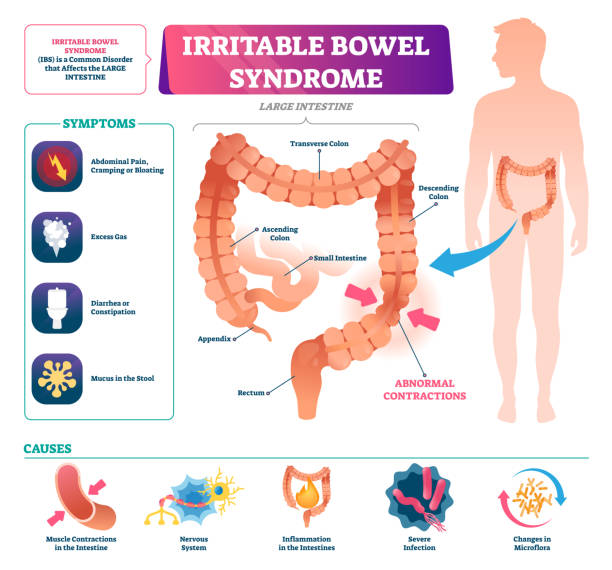Uncover the mysterious triggers behind Irritable Bowel Syndrome – is it food, stress, or something else entirely? Discover more now!
Table of Contents
- Introduction to Irritable Bowel Syndrome
- Understanding the Tummy Troubles
- Spotting an IBS Flare-Up
- What Triggers IBS?
- The Food Factor
- Stress and IBS Connection
- Importance of Physical Activity
- IBS and Lifestyle Choices
- How to Know It’s IBS for True
- Managing IBS – Tips and Tricks
- Conclusion: Keeping Tummies Happy
- Frequently Asked Questions (FAQs)
Introduction to Irritable Bowel Syndrome
Have you ever experienced tummy troubles that seem to never go away? Let’s talk about Irritable Bowel Syndrome, also known as IBS. Understanding IBS is crucial for our well-being, so let’s uncover what it’s all about.
Imagine your tummy as a delicate system of pipes and valves that help digest the food you eat. Sometimes, in IBS, these pipes and valves don’t work as smoothly as they should, leading to discomfort and digestive issues.
IBS can make your tummy feel upset in various ways, like cramping, bloating, and changes in bathroom habits. It’s like your tummy is trying to tell you that something isn’t quite right.
But fret not! By learning more about IBS and its triggers, you can take better care of your tummy and keep it happy and healthy. Let’s explore more about this common digestive condition together.
Understanding the Tummy Troubles
When it comes to digestive issues, there are several common conditions that can cause tummy troubles. It’s essential to distinguish between these conditions and Irritable Bowel Syndrome (IBS) to understand how IBS is different. Let’s delve into what stomach ulcers, fatty liver, ulcerative colitis, celiac disease, and Crohn’s disease are all about.
What are Stomach Ulcers?
Stomach ulcers are sores that develop on the lining of the stomach or the upper part of the small intestine. They can cause pain in the abdomen, bloating, and indigestion. Unlike IBS, which is a chronic condition affecting the large intestine, stomach ulcers are localized sores that can result from various factors such as infection or long-term use of certain medications.
What is a Fatty Liver?
A fatty liver, as the name suggests, is a condition where excess fat accumulates in the liver. This buildup can lead to liver inflammation and impair its function. While IBS primarily affects the digestive system, a fatty liver is a separate issue that can be caused by factors like obesity, high cholesterol, or excessive alcohol consumption.
Getting to Know Ulcerative Colitis
Ulcerative colitis is a type of inflammatory bowel disease characterized by inflammation and ulcers in the lining of the colon and rectum. Unlike IBS, which does not cause visible damage in the digestive tract, ulcerative colitis is a chronic condition that can lead to complications if not managed properly.
Understanding Celiac Disease
Celiac disease is an autoimmune disorder triggered by the ingestion of gluten, a protein found in wheat, barley, and rye. When someone with celiac disease consumes gluten, it triggers an immune response that damages the lining of the small intestine. While both IBS and celiac disease can cause digestive symptoms, celiac disease is a specific autoimmune condition with distinct diagnostic criteria.
Is Crohn’s Disease Like IBS?
Crohn’s disease is another form of inflammatory bowel disease that can affect any part of the digestive tract from the mouth to the anus. Like ulcerative colitis, Crohn’s disease involves inflammation and can cause symptoms such as abdominal pain, diarrhea, and fatigue. It is crucial to differentiate between Crohn’s disease and IBS as they have different causes, symptoms, and treatment approaches.
Spotting an IBS Flare-Up
When you have Irritable Bowel Syndrome (IBS), it’s essential to recognize the signs that indicate a flare-up. Knowing how to identify these symptoms can help you better manage your condition. Here are some common indications that you might be experiencing an IBS flare-up:

Image courtesy of peakintegrativemed.com via Google Images
1. Abdominal Pain
One of the most prevalent symptoms of an IBS flare-up is abdominal pain. This discomfort can range from mild to severe and may be accompanied by cramping. Pay attention to the location, intensity, and duration of the pain to determine if it’s related to your IBS.
2. Changes in Bowel Habits
IBS can cause alterations in your bowel movements. During a flare-up, you may experience diarrhea, constipation, or a combination of both. Keeping track of these changes can help you understand your triggers and manage your symptoms effectively.
3. Bloating and Gas
Feeling bloated and gassy is another common indicator of an IBS flare-up. This uncomfortable sensation can be bothersome and may worsen as your symptoms escalate. Pay attention to what you eat and how it affects your digestive system to alleviate bloating and gas.
4. Fatigue
IBS flare-ups can be draining, both physically and mentally. If you find yourself feeling unusually tired and fatigued, it could be a sign that your IBS is acting up. Getting enough rest and managing stress can help combat fatigue during these episodes.
5. Anxiety and Mood Swings
It’s common for individuals with IBS to experience anxiety and mood swings during flare-ups. The stress of dealing with symptoms can take a toll on your emotional well-being. Recognizing these mood changes can help you implement strategies to cope with stress and anxiety effectively.
By being aware of these signs and symptoms, you can spot an IBS flare-up early and take the necessary steps to manage it. Remember, everyone’s experience with IBS is unique, so it’s essential to listen to your body and seek support from healthcare providers when needed.
What Triggers IBS?
Irritable Bowel Syndrome (IBS) can be triggered by various factors that can lead to the onset or worsening of symptoms. It’s essential to understand these triggers to better manage IBS and improve our overall well-being.
1. Diet Choices
Some foods can aggravate IBS symptoms. For example, fried and fatty foods, dairy products, caffeine, and carbonated drinks are common triggers. It’s essential to pay attention to what we eat and how our bodies react to different foods.
2. Stress and Anxiety
Stress is a significant trigger for IBS symptoms. When we feel anxious or overwhelmed, our gut can become sensitive and react with discomfort. Learning to manage stress through relaxation techniques, such as deep breathing or mindfulness, can help alleviate IBS symptoms.
3. Lack of Physical Activity
Not getting enough exercise can also contribute to IBS flare-ups. Regular physical activity can help regulate digestion, reduce stress, and improve overall gut health. It’s essential to stay active and incorporate movement into our daily routine.
4. Lack of Sleep
Poor sleep habits and irregular sleep patterns can disrupt our body’s internal processes, including digestion. Getting enough rest and maintaining a consistent sleep schedule can benefit those with IBS by reducing symptoms and improving overall well-being.
By understanding and addressing these triggers, individuals with IBS can take proactive steps to manage their symptoms effectively and enhance their quality of life.
The Food Factor
When it comes to managing Irritable Bowel Syndrome (IBS), paying attention to what you eat is incredibly important. Certain foods can trigger IBS symptoms, making it crucial to be mindful of your diet. Let’s delve into the specifics of the food factor and how it influences IBS.

Image courtesy of www.istockphoto.com via Google Images
Specific Triggers
Some foods are known to be common triggers for IBS symptoms. These can include spicy foods, dairy products, caffeine, and high-fat foods. While these may not affect everyone in the same way, it’s essential to be aware of which foods can worsen your IBS symptoms.
Why Diet Matters
Our digestive system is sensitive, especially for those with IBS. Eating a balanced diet rich in fruits, vegetables, whole grains, and lean proteins can help regulate your digestive system and reduce the likelihood of triggering IBS flare-ups. Avoiding foods that are known to exacerbate symptoms can make a significant difference in how you feel.
Being Mindful
Keeping a food diary can be a helpful way to track what you eat and how it affects your IBS symptoms. By noting down your meals and any subsequent reactions, you can pinpoint specific triggers and make informed decisions about your diet moving forward.
Stress and IBS Connection
Living with irritable bowel syndrome (IBS) can be tough, especially when dealing with the unpredictable nature of its symptoms. Many factors can trigger or worsen IBS symptoms, one of which is stress. Let’s dive into how stress affects IBS and explore some ways to manage it effectively.
Understanding Stress and IBS
Stress is our body’s natural response to challenges or threats. When we encounter stress, our body releases hormones that can affect our digestive system. For individuals with IBS, stress can lead to flare-ups of abdominal pain, bloating, diarrhea, or constipation.
How Stress Impacts IBS
Research suggests that stress can trigger changes in the gut-brain axis, the communication system between the brain and the gut. This can result in heightened sensitivity in the intestines, leading to increased pain and discomfort for those with IBS. Additionally, stress can also disrupt the normal rhythm of digestion, exacerbating IBS symptoms.
Managing Stress for Better IBS Control
While it’s not always possible to eliminate stress entirely, there are strategies you can use to manage it and reduce its impact on IBS:
| Triggers | Impact on IBS |
|---|---|
| Stress | Can worsen IBS symptoms such as abdominal pain and discomfort |
| Dietary Factors | Certain foods like dairy, caffeine, and artificial sweeteners can trigger symptoms |
| Bacterial Infections | Infections in the gut can lead to inflammation and worsen symptoms |
| Hormonal Changes | Changes in hormone levels can affect gut motility and sensitivity |
– **Relaxation techniques**: Engage in activities like deep breathing, meditation, or yoga to relax your mind and body.
– **Regular exercise**: Physical activity can help alleviate stress and improve overall well-being, which may contribute to better management of IBS symptoms.
– **Healthy lifestyle choices**: Eating well, getting enough sleep, and maintaining a balanced routine can all help in reducing stress levels.
By taking steps to manage stress in your daily life, you may find that your IBS symptoms become more manageable and less disruptive. Remember, it’s essential to listen to your body and prioritize self-care to keep your tummy happy and healthy.
Importance of Physical Activity
Physical activity is crucial for our overall health, including managing irritable bowel syndrome (IBS). When we engage in activities like running, biking, or playing sports, our bodies benefit in many ways.

Image courtesy of www.pinterest.com via Google Images
How Exercising Helps with IBS
Moving our bodies can actually help improve IBS symptoms. When we exercise, it helps to regulate our digestion and bowel movements. This means that being active can make our tummies feel better!
Reducing Stress through Physical Activity
Exercise is also a great way to reduce stress, which is a common trigger for IBS flare-ups. When we’re active, our bodies release endorphins, which are chemicals that make us feel happy and relaxed. By reducing stress, we can help keep our IBS symptoms in check.
Incorporating regular physical activity into our daily routine not only benefits our overall health but also plays a significant role in managing and improving the symptoms of irritable bowel syndrome.
IBS and Lifestyle Choices
Living with irritable bowel syndrome (IBS) means paying attention to our lifestyle choices. What we do every day can have a big impact on how we feel. Let’s explore some of the things we can do to help manage IBS.
The Role of Diet
One essential lifestyle choice for managing IBS is watching what we eat. Some foods can trigger IBS symptoms like bloating, gas, and stomach pain. It’s crucial to pay attention to how different foods make us feel and try to avoid those that cause discomfort. Eating a balanced diet with plenty of fruits, vegetables, and whole grains can help keep our digestive system happy.
Stress Management
Did you know that stress can make IBS symptoms worse? It’s true! Finding ways to relax and unwind can be beneficial for managing IBS. Simple activities like deep breathing, practicing yoga, or going for a walk can help reduce stress levels and make us feel better.
Regular Exercise
Moving our bodies is another lifestyle choice that can have a positive impact on IBS. Exercise not only helps keep our bodies healthy but can also improve digestion and reduce symptoms like constipation. Whether it’s playing sports, riding a bike, or dancing to our favorite music, staying active can play a significant role in managing IBS.
How to Know It’s IBS for True
When your tummy troubles don’t seem to go away, it’s essential to understand if it’s Irritable Bowel Syndrome (IBS) causing the discomfort. But how can you tell if it’s truly IBS?

Image courtesy of www.istockphoto.com via Google Images
Seeking Professional Help
If you often feel stomach pain, bloating, or changes in your bowel habits, it’s crucial to visit a doctor. A healthcare provider can perform tests and exams to rule out other conditions like stomach ulcers, fatty liver, ulcerative colitis, celiac disease, or Crohn’s disease. They will also evaluate your symptoms to determine if IBS is the likely culprit.
Importance of Diagnosis
An accurate diagnosis is essential because it guides the proper treatment plan. Unlike a regular tummy ache that might go away with rest or simple remedies, IBS requires specific management strategies tailored to your symptoms. Knowing for sure that it’s IBS ensures you’re on the right track to feeling better.
Managing IBS – Tips and Tricks
Living with Irritable Bowel Syndrome (IBS) can be tough, but there are ways to help manage your symptoms and feel better. Here are some tips and tricks for kids and their families dealing with IBS:
Stay Hydrated
Drinking plenty of water is essential for good digestion and can help ease IBS symptoms. Make sure to carry a water bottle with you wherever you go and sip on it throughout the day.
Eat Regular Meals
Try to stick to a regular meal schedule and avoid skipping meals. Eating smaller, more frequent meals can help regulate your digestion and reduce the chances of triggering IBS symptoms.
Keep a Food Diary
Tracking what you eat and how it affects your symptoms can help you identify trigger foods. By keeping a food diary, you can better understand which foods worsen your IBS symptoms and avoid them in the future.
Manage Stress
Stress can often worsen IBS symptoms, so finding ways to relax and unwind is crucial. Whether it’s practicing deep breathing exercises, listening to music, or doing yoga, finding stress-relief techniques that work for you can help manage your IBS.
Get Regular Exercise
Physical activity can not only improve your overall health but also help regulate your bowel movements and reduce IBS symptoms. Aim to incorporate some form of exercise into your daily routine, whether it’s playing a sport, going for a walk, or dancing around your room.
Don’t Hesitate to Talk to Your Doctor
If you’re experiencing persistent or severe IBS symptoms, don’t be afraid to speak to your doctor. They can provide guidance on treatment options, including medications or dietary changes, to help alleviate your symptoms and improve your quality of life.
Conclusion: Keeping Tummies Happy
Throughout this blog, we have delved into the realm of irritable bowel syndrome (IBS) and how it affects our digestive health. With a better understanding of IBS and its triggers, we can now work towards keeping our tummies happy and healthy.

Image courtesy of www.nkch.org via Google Images
Summary of Key Points
First and foremost, we learned that IBS is different from other digestive issues like stomach ulcers, fatty liver, ulcerative colitis, celiac disease, and Crohn’s disease. While these conditions have their own set of symptoms and causes, IBS is primarily characterized by abdominal pain, bloating, and changes in bowel habits.
We also explored how various factors, such as diet, stress, physical activity, and lifestyle choices, can contribute to IBS flare-ups. By being mindful of what we eat, practicing stress management techniques, staying active, and making positive lifestyle changes, we can alleviate IBS symptoms and improve our overall well-being.
A Hopeful Outlook
It’s important to remember that living with IBS does not mean that we have to suffer constantly. With the right knowledge and proactive measures, we can effectively manage our symptoms and lead fulfilling lives. By working closely with healthcare providers, implementing healthy habits, and seeking support from family and friends, we can navigate the challenges of IBS with resilience and positivity.
Remember, you are not alone in this journey. Together, we can keep our tummies happy and embrace a vibrant and vibrant life free from the constraints of irritable bowel syndrome.
Frequently Asked Questions (FAQs)
Can Eating Certain Foods Stop IBS?
While there is no one-size-fits-all solution to stopping IBS, being mindful of the foods you eat can help manage symptoms. Some foods may trigger IBS symptoms, so keeping a food diary to track what you eat and how you feel afterwards can help identify potential triggers. Opting for a balanced diet rich in fruits, vegetables, whole grains, and lean proteins can often alleviate symptoms for many individuals with IBS.
Will I Have IBS Forever?
Living with IBS can feel overwhelming, but it’s essential to remember that the condition is manageable. IBS symptoms may come and go, and with the right treatment and lifestyle adjustments, many people experience significant relief. It’s crucial to work closely with a healthcare provider to develop a personalized plan to address your specific symptoms and triggers.
Does Playing Sports Help with IBS?
Physical activity, including playing sports, can have a positive impact on IBS symptoms. Exercise helps reduce stress, improve digestion, and promote overall well-being, which can all contribute to managing IBS. It’s essential to find activities that you enjoy and that don’t exacerbate your symptoms. Consult with your healthcare provider about suitable exercises and how to incorporate them into your routine to help with IBS management.





